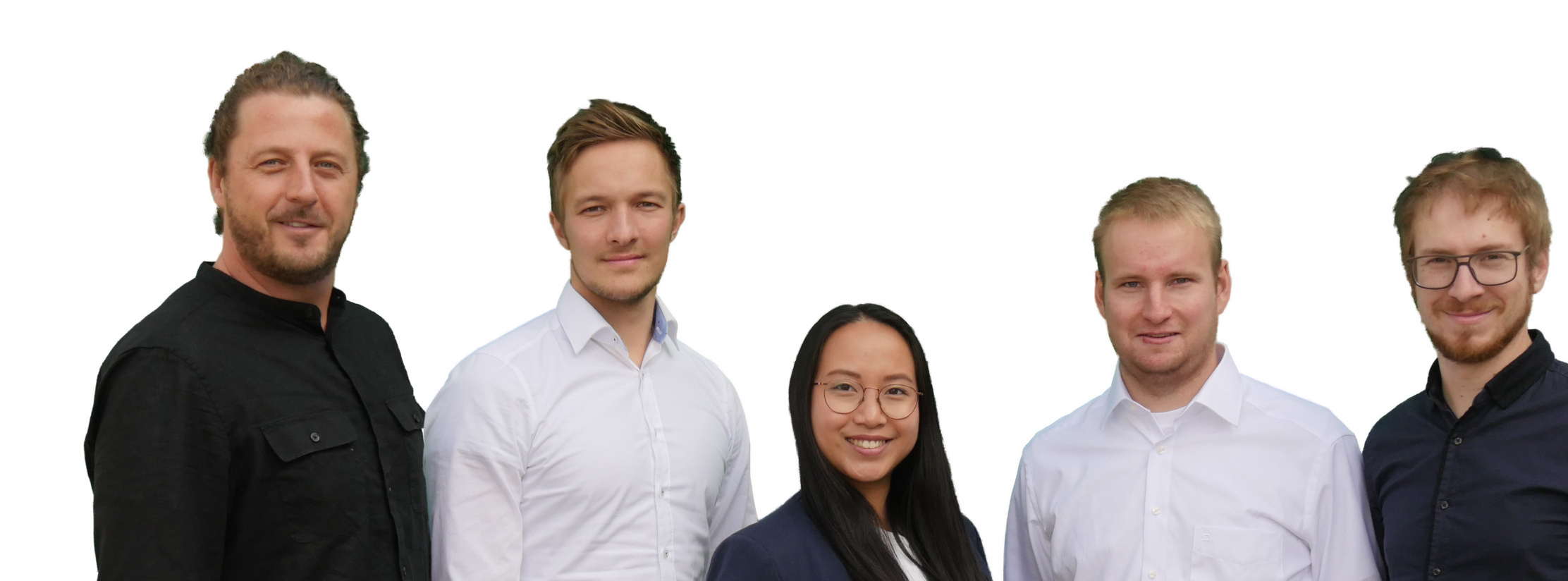Resource-friendly 3D printing

A frequent problem in 3D printing is that the material does not adhere properly to the metal print bed and the printing process has to be aborted. This increases energy and material consumption as well as costs, thus having a negative impact on industrial production and the environment. “FLIPoQ”, a plastics technology start-up from Darmstadt University of Applied Sciences, has developed an innovative process that makes materials adhere better to the print bed. In this way, the start-up is making an important contribution to resource-friendly production. The team is currently in the process of setting up a company and making the prototype ready for the market. The start-up has been awarded funds of almost €700,000 for an initial 18 months within the “EXIST – Transfer of Research” programme of the Federal Ministry for Economic Affairs and Climate Action.
By Simon Colin, 23.2.23
In 3D printing, the material is applied to heated metal plates and moulded into shape. It is often the case that the material detaches from the print bed and production has to be aborted. “FLIPoQ”, a start-up from h_da, has developed a new type of substrate that is placed separately in the print bed and, thanks to its lattice structure, makes the 3D print adhere better to the build platform. This saves resources and costs and makes a sustainable contribution to rapid prototyping. What’s the trick? The lattice can be made of the same material as the desired component, which is then printed directly onto the substrate. This is something completely new and the “FLIPoQ” team has filed a corresponding patent. In addition, material savings of up to 90 percent are possible with this process because the substrate can be rotated around its own axis on the print bed as needed, meaning that significantly less support material is required for production.
It was during his doctoral studies under Professor Roger Weinlein at the Faculty of Mechanical and Plastics Engineering that Dr Jens Butzke came up with the idea for this innovative method of 3D print production based on a support lattice. Together with four other h_da alumni, he is now in the process of setting up a company. They have 18 months to do so and have been awarded funds of €700,000 within the “EXIST – Transfer of Research” programme, via which the Federal Ministry for Economic Affairs and Climate Action is supporting outstanding research-based start-up projects involving complex and risky development work. The project team is currently networking with the first corporate customers and preparing to build the first production equipment for use at customers’ facilities. Business operations must then start at the latest in the next funding period (Phase II).
The start-up team sees potential in medical technology, for medical aids such as orthoses, for example, or for gripper systems in plant engineering. In future, large prints should also be possible, for example for the construction industry or the automotive sector. During the funding period, the “FLIPoQ” team is employed at h_da, as envisaged by the programme. In addition, h_da is making office space available on its Dieburg Campus. The start-up is also networking within h_da: the intention is for students from a wide range of disciplines to benefit from the project, write a thesis on 3D printing or become involved as research assistants.
“Universities are constantly producing innovative approaches, but in many cases the step from scientific development to the market readiness of a product or service does not succeed,” says Professor Nicole Saenger, Vice President for Research and Sustainable Development. “Although our Service Centre Research and Transfer (SFT) supports people who want to set up a company, the financing of promising start-up ideas remains challenging. This is precisely where the “EXIST – Transfer of Research” funding programme comes in. It encourages aspiring entrepreneurs to set up university-based start-ups, leaves the know-how at the university and enhances transfer from science to business.”
Background: Further information on the EXIST – Transfer of Research funding programme.
Contact
Simon Colin
University Communication
Tel.: +49.6151.16-38036
E-Mail: simon.colin@h-da.de
Dr. Jens Butzke
Max-Planck-Straße 2 – 64807 Dieburg
Tel +49 6151 – 533 60312
Mail: jens.butzke@h-da.de